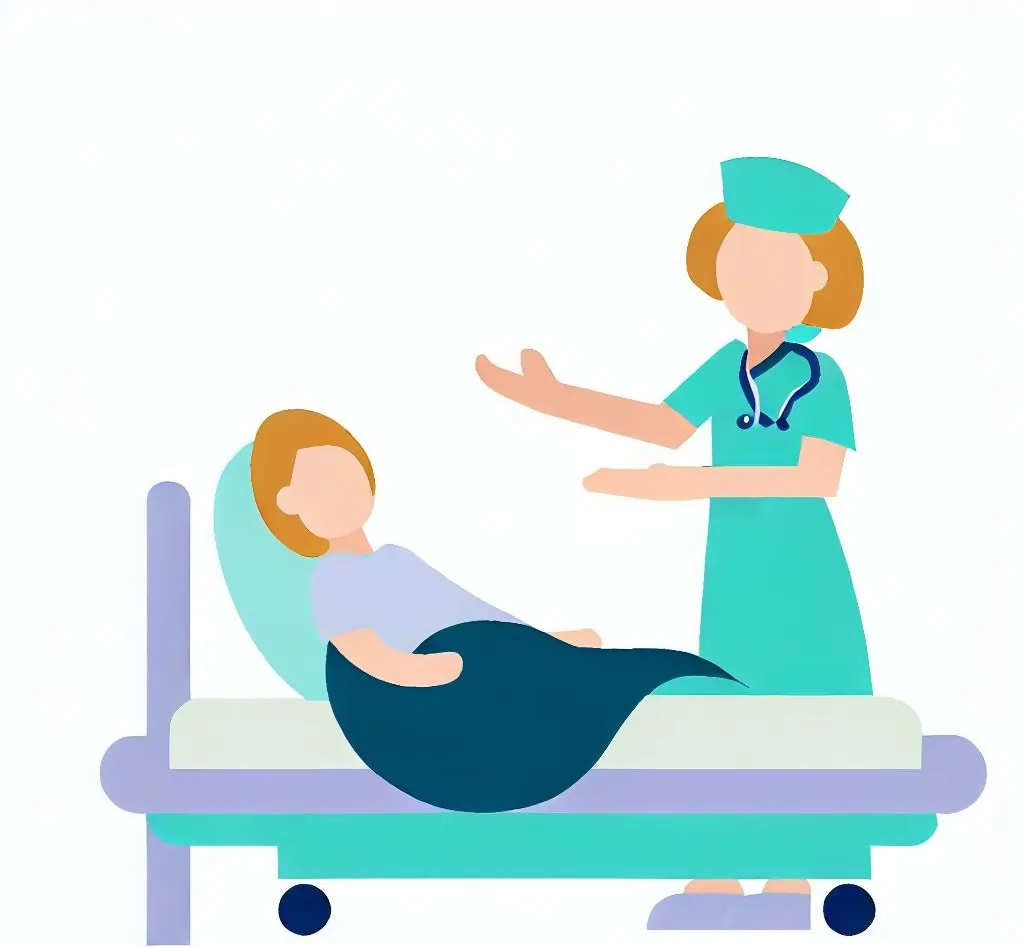Holistic Patient Care: A Comprehensive Guide for Nursing Students Aspiring for Leadership Roles in Healthcare

Introduction to Holistic Patient Care
Holistic patient care is increasingly being recognized as an essential paradigm in healthcare, offering a multi-faceted approach to treatment that goes beyond just alleviating physical symptoms. The philosophy of holistic care delves deep into understanding the patient as a unique individual, necessitating an in-depth grasp of various disciplines including physiology, psychology, and sociology. It's not just about prescribing medication or conducting surgical procedures; it's about creating an environment where the emotional and mental health of the patient is also nurtured. This often involves utilizing a multidisciplinary team approach that may include counselors, social workers, spiritual guides, and other specialists alongside medical doctors and nurses. Understanding the principles of holistic care is paramount for healthcare providers today, especially for those aspiring to be leaders in the industry. It calls for a blend of scientific knowledge and compassionate care, aiming for wellness and healing in the truest sense.

Why is Holistic Care Important?
Holistic care has taken center stage as healthcare systems globally transition to a more patient-centered approach. Its significance lies in the acknowledgment that health is a composite of mental, emotional, and physical well-being. Unlike traditional models that may treat symptoms in isolation, holistic care aims to explore the root causes by looking at the patient's overall state of health. This is increasingly backed by scientific research, highlighting the profound connections between emotional and mental states and their impact on physical health. By focusing on the whole person, healthcare providers can design more effective and sustainable treatment plans, improving long-term outcomes and overall quality of life.
Essential Skills for Nursing Students
Leadership in healthcare extends far beyond managerial tasks; it's fundamentally about shaping the quality and ethos of patient care. For nursing students aspiring to leadership roles, understanding and practicing holistic patient care becomes crucial. These future leaders are expected not just to administer medical treatment but to serve as role models in integrated, person-centered care. This calls for a specialized skill set that merges clinical expertise with emotional intelligence, ethical reasoning, and effective communication. By embracing a holistic approach, they can more accurately assess and address a patient's complete range of needs—physical, emotional, and mental. In doing so, they set the standard for excellent care, driving both patient satisfaction and positive health outcomes.
Interpersonal Communication
Effective communication serves as the linchpin for quality healthcare, going beyond mere clinical interactions to create a therapeutic relationship with patients. For nurses, mastering communication techniques is not optional but essential. It is especially crucial for capturing the nuances of a patient's emotional and mental state, which often cannot be understood through medical tests alone. Techniques like active listening, open-ended questioning, and body language interpretation are invaluable for nurses. These skills enable them to undertake comprehensive mental and emotional assessments, thereby informing more accurate and personalized care plans. As future leaders in healthcare, nursing students should prioritize developing these communication skills, as they are integral to delivering holistic, patient-centered care.
Critical Thinking
The intricate interplay between physical and psychological symptoms demands a level of critical thinking that goes beyond surface-level assessments. For nursing students, this skill is not just advantageous but essential for effective patient care. They must be trained to see beyond the manifest symptoms, discerning underlying issues or hidden complications that might not be immediately apparent. Critical thinking enables them to synthesize information from various sources, including patient history, current symptoms, and diagnostic tests, to formulate a more holistic treatment plan. As they step into future leadership roles, the ability to critically assess and link disparate health aspects will be crucial in delivering comprehensive, high-quality healthcare.
Emotional Intelligence in Nursing
In the multifaceted realm of healthcare, nurses frequently serve as the initial touchpoint for patients and their families. Their interactions set the tone for the entire healthcare experience. Emotional intelligence (EI) emerges as an indispensable tool in these situations. Defined as the ability to identify, understand, and manage our own emotions and the emotions of others, EI provides nurses with the insight to respond with sensitivity, fostering trust and effective communication. By recognizing and regulating their own emotional responses, nurses can approach situations with clarity and calmness. Moreover, by discerning a patient's emotional cues, they can tailor their care approach to be more personalized and empathetic, enhancing both patient comfort and understanding.
The Confluence of Mental Health and Nursing
In an era where the understanding of mental health is continually expanding, it's imperative for nurses to have a foundational grasp of this domain. As they frequently encounter patients grappling with conditions like stress, depression, or anxiety, an understanding of mental health nuances becomes paramount. It's not just about identifying these conditions, but about comprehending their interrelation with physical health. A patient's mental state can significantly influence the manifestation and management of physical ailments. By equipping themselves with knowledge in mental health, nurses can offer a more holistic care approach, addressing the intertwined nature of mental and physical health, and ensuring the well-being of their patients in its truest sense.
Cultural Sensitivity
Understanding and respecting cultural differences is crucial, especially when dealing with emotional and mental well-being. Different cultures have various ways of expressing and managing emotions, and this should be respected in a healthcare setting.
Holistic Patient Care: Integrating Mental, Emotional, and Physical Health
Mental Health
With the rising prevalence of mental health issues globally, the integration of psychological care is no longer optional but mandatory. Nurses should be equipped with basic skills to recognize signs of mental distress or disorders. Initiating conversations around mental health and providing appropriate resources are steps in offering holistic care.
Emotional Health
Emotions play a vital role in physical well-being. Stress, for example, can exacerbate existing medical conditions and hamper the healing process. Nurses trained in holistic patient care should be capable of recognizing emotional triggers and offer interventions like stress management techniques.
Physical Health
Physical health, while ostensibly the most straightforward aspect of patient care, is far from isolated. It's intimately connected to mental and emotional states. For example, chronic illnesses like diabetes or cardiovascular disease often come with accompanying mental health issues like depression or anxiety. Nurses who recognize these connections can offer far more than symptom management; they can provide truly comprehensive care that addresses the root causes and mitigates the interrelated effects on the patient's overall well-being. This multi-faceted approach not only promotes better physical health but also enhances mental and emotional stability.
Case Management
The complexity of chronic illnesses often necessitates a multi-disciplinary approach involving various healthcare providers like physicians, dietitians, and mental health professionals. Nurses are ideally positioned to act as case managers in this setting. They serve as the hub in the wheel of healthcare, coordinating different aspects of patient care and ensuring seamless communication among providers. By taking on this pivotal role, nurses provide a consolidated point of contact for both patients and their families, thereby simplifying the often overwhelming healthcare journey and ensuring that no aspect of the patient's well-being is overlooked.
Advocacy
In the healthcare ecosystem, nurses often serve as the linchpin between patients and the broader medical team, positioning them as natural patient advocates. Leveraging this unique role, they can champion a patient’s complete well-being—mentally, emotionally, and physically. Effective advocacy goes beyond conveying medical statistics; it involves translating the nuanced needs of the patient into actionable medical plans. By ensuring that these aspects are clearly communicated to doctors, therapists, and other healthcare professionals, nurses help build a more coherent and personalized care strategy. As future leaders in healthcare, mastering the art of advocacy becomes crucial for nursing students, emphasizing their role in facilitating holistic, patient-centered care.
Conclusion
Leadership in healthcare requires more than administrative acumen. For nursing students aspiring to such roles, acquiring skills in holistic patient care is indispensable. By focusing on the integration of mental, emotional, and physical health, nurses can significantly improve patient outcomes and satisfaction. The future of healthcare lies in its ability to offer comprehensive care, and nursing students are at the forefront of making this a reality.
By embracing holistic patient care, nursing students prepare themselves to meet the healthcare challenges of today and tomorrow, setting themselves apart as leaders in a transformative industry.